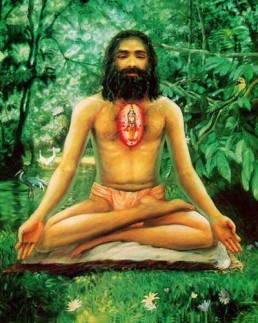Patanjali Yogasutra Introduction
Part 1 – Samādhi-pāda – Yoga and its Aims
1.1
1.2
1.3
1.4
1.5
1.6
1.7
1.8
1.9
1.10
1.11
1.12
1.13
1.14
1.15
1.16
1.17
1.18
1.19
1.20
1.21
1.22
1.23
1.24
1.25
1.26
1.27
1.28
1.29
1.30
1.31
1.32
1.33
1.34
1.35
1.36
1.37
1.38
1.39
1.40
1.41
1.42
1.43
1.44
1.45
1.46
1.47
1.48
1.49
1.50
1.51
Part 2 – Sādhana-pāda – Yoga and its Practice
2.1
2.2
2.3
2.4
2.5
2.6
2.7
2.8
2.9
2.10
2.11
2.12
2.13
2.14
2.15
2.16
2.17
2.18
2.19
2.20
2.21
2.22
2.23
2.24
2.25
2.26
2.27
2.28
2.29
2.30
2.31
2.32
2.33
2.34
2.35
2.36
2.37
2.38
2.39
2.40
2.41
2.42
2.43
2.44
2.45
2.46
2.47
2.48
2.49
2.50
2.51
2.52
2.53
2.54
2.55
Part 3 – Vibhūti-Pāda – Powers
3.1
3.2
3.3
3.4
3.5
3.6
3.7
3.8
3.9
3.10
3.11
3.12
3.13
3.14
3.15
3.16
3.17
3.18
3.19
3.20
3.21
3.22
3.23
3.24
3.25
3.26
3.27
3.28
3.29
3.30
3.31
3.32
3.33
3.34
3.35
3.36
3.37
3.38
3.39
3.40
3.41
3.42
3.43
3.44
3.45
3.46
3.47
3.48
3.49
3.50
3.51
3.52
3.53
3.54
3.55
3.56
Part 4 – Kaivalya-pāda – Liberation
4.1
4.2
4.3
4.4
4.5
4.6
4.7
4.8
4.9
4.10
4.11
4.12
4.13
4.14
4.15
4.16
4.17
4.18
4.19
4.20
4.21
4.22
4.23
4.24
4.25
4.26
4.27
4.28
4.29
4.30
4.31
4.32
4.33
4.34

Commentary on Sri Patanjali Yogasutra by Swami Vivekananda
The roots, the causes, the Samskaras being there, they manifest and form the effects. The cause dying down becomes the effect; the effect getting subtler becomes the cause of the next effect. A tree bears a seed, which becomes the cause of another tree, and so on. All our works now are the effects of past Samskaras; again, these works becoming Samskaras will be the causes of future actions, and thus we go on. So this aphorism says that the cause being there, the fruit must come, in the form of species of beings: one will be a man, another an angel, another an animal, another a demon. Then there are different effects of Karma in life. One man lives fifty years, another a hundred, another dies in two years, and never attains maturity; all these differences in life are regulated by past Karma. One man is born, as it were, for pleasure; if he buries himself in a forest, pleasure will follow him there. Another man, wherever he goes, is followed by pain; everything becomes painful for him. It is the result of their own past. According to the philosophy of the Yogis, all virtuous actions bring pleasure, and all vicious actions bring pain. Any man who does wicked deeds is sure to reap their fruit in the form of pain.
Yogasutra – Verse 2.13 – Yogasutra-2.13-sati mūle – In Sanskrit with English Transliteration, Translation, Meaning and Commentary by Swami Vivekananda – Yogasutra-2-13
